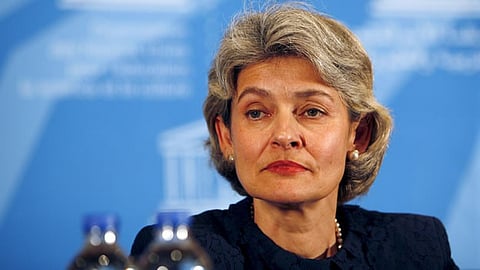Time to have a woman to lead the UN
The world body could do with a more transparent selection process to start with, if it is serious about reforms and reclaiming its authority

As the United Nations celebrates its 70th birthday this year — it was established on October 24, 1945 — people are reflecting why it has failed to have a woman to lead it so far. Not surprisingly, the question of selecting a woman candidate for the Secretary General’s job is gaining momentum before next year’s election to this highest office at the world body.
Secretary-General Ban Ki-moon’s term ends on December 31, 2016. While in the past, the choice of a successor took place before the final quarter of the Secretary-General’s last year in office, campaigning for a woman secretary general has already started in UN circles.
Some argue that a woman should not be selected for this office merely because of her gender. Others say that a woman should be given preference “provided all things are equal” which, implicitly, means that a woman should be selected if she possesses the requisite credentials like her male contenders to fill in this job.
Notwithstanding whosoever enters the arena to wrest the secretary-general’s crown, the candidate will invariably face a mountain of incredible responsibilities, foremost of which will be to bring about the urgently-needed reforms and reinvigorate this humongous organisation before it falls into disrepute of becoming a white elephant that cannot perform the most important task of eliminating war, hunger and poverty, and the impending threat of climate change that can spell disaster for future generations to come. Indeed, with our shrinking resources and an ever-growing population — expect at least an additional three billion people by 2050 — our existing resources will be depleted faster than ever before, leading to heightened tensions and violence worldwide. This will call for a person with vision, dexterity and courage, with the ability to rally world opinion behind the world body.
Uphill task
But it has been an uphill task for those who want to see a female avatar of the next secretary-general. They criticise the present selection process as secretive, non-transparent, opaque and high-handed. This process, which takes place behind closed doors, is often compared to a card game where the players hold the cards close to their chest and play only when the candidate amenable to their interests, is found; the privileged permanent five members of the “club”, as the Security Council is sardonically described by some, largely decide who will become the Secretary General.
The final choice of a candidate must get affirmative votes from nine of the 15 — the five permanent and ten non-permanent — Security Council members, with no objections from any of the five veto-wielding permanent members. The final candidate is then presented to the General Assembly for confirmation.
But are there no women candidates cut out for the job of what is sometimes referred to as the “World President”? Jean Krasno, a Yale professor and an expert on UN affairs, who chairs the Woman Secretary General campaign, mentions names of outstanding women from around the world, including Eastern Europe — it is Eastern Europe’s turn under the geographical rotation principle to field a candidate this time — such as Irina Bokova, currently Unesco’s director general, or Kristalina Ivanova Georgieva, an economist and EU commissioner who leads the list of potential candidates. But there are also others such as Michelle Bachelet, President of Chile and former head of UN Women, and Helen Clark, former prime minister of New Zealand and currently head of UNDP, though the last two are not from Eastern Europe.
The majority of UN member countries are not uncomfortable with having a woman running the world body because they see women in their own countries taking up important positions. Also, women have headed governments of many countries. Indira Gandhi, for example, led India, the world’s largest democracy. Not to forget Margaret Thatcher of England. Or Corazon Aquino of the Philippines. Germany, Europe’s strongest economy, is presently led by Angela Merkel, the world’s most powerful woman leader. There are scores of other women wielding the reins of political leadership.
The question of selecting a woman secretary general goes beyond the mere gender equality argument. Women offer, as Krasno contends, a different perspective: they understand the harsh realities of the world, particularly those that affect women and children who often bear the brunt of problems and crises.
Women in power are influential role models. Even those who do not implement a strong feminine agenda still advance women’s causes. Many Indian women say that the “rape wave” currently sweeping India would not have happened under Indira Gandhi.
Krasno questions why a woman has not been selected as secretary-general although women represent more than half of the world’s population.
She says that women can do anything that a man can do besides bringing to office the consciousness that women are the primary victims of human trafficking, are refugees and internally displaced, carrying the added burden of caring for their children and usually their entire family.
Krasno rejects the excuse that there are not enough qualified women. Her campaign’s website lists 30 outstanding women from around the world, including presidents, prime ministers, foreign ministers, heads of large international organisations, and more.
Isn’t it time that the UN had a woman secretary general? It is indeed.
Manik Mehta is a commentator on Asian affairs.
Sign up for the Daily Briefing
Get the latest news and updates straight to your inbox



